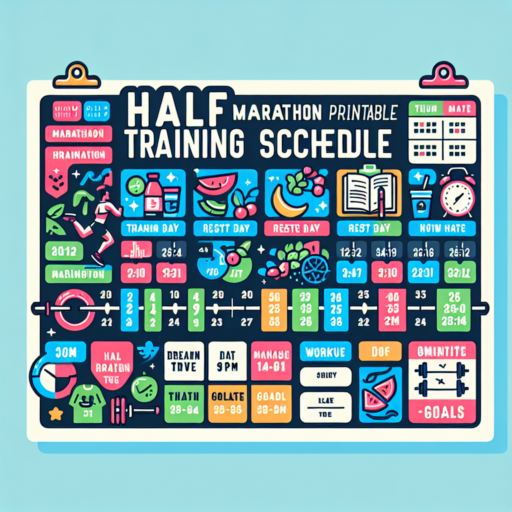No se han encontrado productos.
How long do you need from couch to half marathon?
Transitioning from a sedentary lifestyle to running a half marathon is an ambitious goal that requires dedication and a strategic training plan. The time needed to prepare for such an endeavor varies significantly based on several factors including your base fitness level, running experience, and personal health. Typically, a beginner runner might require anywhere from 12 to 20 weeks of consistent training to get ready for a half marathon.
Factors Influencing Training Duration
Training duration can be influenced by your current fitness level and running experience. Beginners, with little to no running experience, will need more time to build endurance and physical fitness, often starting with walk/run intervals. On the other hand, intermediate runners might already possess a good foundation of endurance and can focus on increasing distance and improving pace, potentially reducing their training period.
Key Components of a Half Marathon Training Plan
A comprehensive half marathon training plan includes several key components:
- Weekly Mileage: Gradually increasing your weekly mileage is crucial for building endurance without risking injury.
- Rest Days: Incorporating rest days into your training schedule helps prevent overtraining and allows your body to recover.
- Speed Work: To improve your running pace, speed work such as intervals or tempo runs should be included in your training.
Balancing these components effectively is essential for a successful transition from couch to half marathon, regardless of the exact timeframe.
Can you go from couch to half marathon in 12 weeks?
Embarking on the journey from a sedentary lifestyle to completing a half marathon in just 12 weeks is a challenge that intrigues many. It raises questions about the feasibility of such a transformation and the type of dedication and training required. While it’s a commendable goal, potential runners should approach it with a blend of enthusiasm and caution. First and foremost, it’s essential to assess your current physical condition and consult with a healthcare professional before taking on such a strenuous training regimen.
Building a Solid Foundation is crucial. Initial weeks should focus on cultivating a base level of fitness. For absolute beginners, this might mean starting with brisk walking, gradually introducing short runs, and then increasing the duration and intensity. This period is also about learning to listen to your body, understanding the difference between good pain (muscle soreness) and bad pain (injury), and ensuring proper recovery and nutrition.
Varying Your Training can enhance your preparation. Incorporating different types of workouts, such as interval training, long slow runs, and perhaps even some cross-training, can improve your running economy and reduce the risk of injury. It’s also beneficial to include strength training exercises twice a week to build muscle endurance and stability, which are vital for long-distance running.
Can I go from couch to half marathon in 7 months?
Embarking on the journey from being a couch enthusiast to completing a half marathon in 7 months is an achievable goal for many. This transformation involves dedication, a structured training plan, and attention to your body’s needs and recovery times. The key lies in building your endurance gradually, which prevents injury and prepares your body for the prolonged physical exertion of running 13.1 miles.
Creating a Customized Training Plan
A personalized training plan is crucial for a smooth transition from minimal physical activity to running a half marathon. Beginners should focus on incremental progress, starting with a mix of walking and light jogging, then gradually increasing the intensity and duration of the runs. It’s not just about the distance; incorporating strength training and flexibility exercises into your routine will enhance your running form and efficiency.
Nutrition and Hydration
Understanding the importance of nutrition and hydration is another key component. Fueling your body with the right nutrients before, during, and after your runs will keep your energy levels stable and aid in recovery. Staying hydrated is equally important, as dehydration can severely impact your performance and overall health.
While the goal of transitioning from the couch to completing a half marathon in 7 months is ambitious, it is entirely feasible with the right mindset and approach. Starting slowly, respecting your body, and being consistent with your training will pave the way for successfully achieving this milestone.
How many weeks does it take to train for half marathon?
Training for a half marathon is a journey that varies significantly from one individual to another, depending on your baseline fitness level, running experience, and personal goals. Generally, most training plans for beginners stretch over 12 to 16 weeks. This timeframe allows your body to adapt gradually to the increasing mileage, helping prevent injuries and building up your stamina and running efficiency. It’s a structured approach that ensures you can comfortably finish the 13.1-mile race.
Intermediate runners or those who already have a solid foundation of running might consider a shorter training plan, spanning from 10 to 12 weeks. This type of plan assumes you have the ability to run at least 3-5 miles comfortably and just need to focus on increasing endurance and improving your race time. For these plans, intensity and mileage increase at a faster pace, incorporating more advanced training techniques like intervals, hills, and tempo runs.
It’s crucial to understand that while the question of how many weeks it takes to train for a half marathon has a broad answer, personalizing your training plan is key to success. Listening to your body, allowing for adequate rest, and adjusting the plan as needed can make the difference between merely finishing and achieving a personal best. Remember, the goal is to arrive at the race start line healthy, well-prepared, and ready to enjoy the experience.




